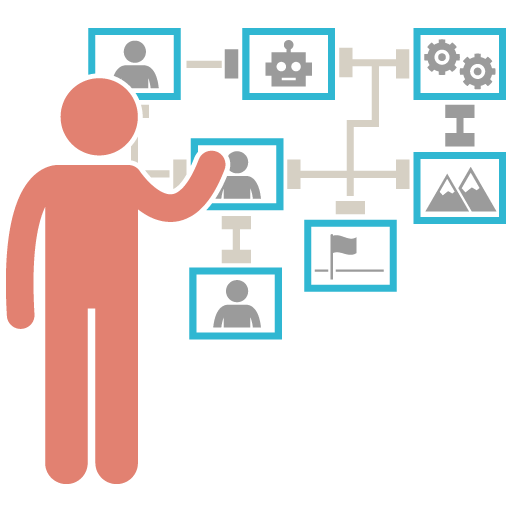
No-Code/Low-Code have become major buzzwords in the application development space. If you are just beginning to consider a no-code approach for your organization, it may be difficult to determine where and how to get started. How do you look beyond the surface information and the hyper-technical jargon and actually figure out whether no-code will work for your needs, and if yes, which would be the right platform to choose?
No-Code is a radical approach towards application development, especially in the Enterprise space. The right platform can dramatically transform your business and give you a clear path towards exponential customer success.
No-code application development has its roots in the low-code development movement, which started gaining traction in the early 2000s. The idea behind low-code was to create a platform that would allow developers to create applications faster and with less coding than traditional development methods.
Low-code platforms still required some coding skills, limiting the scope of users who could benefit from them. Conventional software development requires you to manually write all the code to create applications. In most cases, the tools used for this are very basic. While many of them do let you visually design screen UIs, adding logic to these screens, creating more complex elements like APIs or batch processes, writing deployment scripts, etc can only be done by highly skilled and experienced software developers with in-depth knowledge of multiple programming languages and various aspects related to IT infrastructure.
In recent years, no-code platforms have emerged as the next evolution of low-code development. These platforms are designed to be accessible to non-technical users, enabling them to create applications with minimal or no coding required. This approach has opened up a world of possibilities for businesses and individuals looking to create their own software applications.
No-Code brings a radical change to the software development approach, and in a much broader scope of Digital Transformation. While Low-Code significantly moves a large chunk of development activities to a visual approach, some elements still need manual coding. Over time, this manually written code becomes “legacy code” that will be even more difficult to maintain or modernize. With No-Code, you can create complex Cloud-native applications – from start to end – visually, without having to write any code manually or bother with a confusing array of editors and other tools. This not only speeds up development but also accelerates deployment and optimizes the entire post-delivery maintenance process.
A true no-code platform will give you all the tools required to design rich user interfaces, create complex logic and deploy applications through a purely visual approach that can be executed by even business users or developers with lower skill levels, without being concerned about specific programming languages.
No-code application development is a game-changer for businesses looking to create software applications rapidly to speed up their digital transformation initiatives. With its accessibility, speed, and cost-effectiveness, it is no wonder that it is gaining traction in the tech industry.
(“Understanding Digital Transformation – what it is, and what it is not“ – the article linked below, takes you on a journey through the history, evolution, and compelling factors of Digital Transformation. Delve into the strategic mindset required to integrate digital technology across all facets of your business, revolutionizing operations and driving customer value. Gain insights into the role of technological advancements, explore different approaches, and debunk common misconceptions surrounding digital transformation.)
By 2025, 70% of new applications developed by enterprises will use low‑code or no‑code technologies, up from less than 25% in 2020.
– Gartner

Release new applications and updates to your users faster than ever before by drastically speeding up your development processes, and reducing your testing and deployment efforts.

Increase your team’s productivity and efficiency by giving them the tools they need to accomplish much more with much lesser effort, time and cost.

Rationalize and simplify your apps ecosystem by rapidly migrating or creating mission-critical apps using a unified platform that takes away the headaches and frustrations typically associated with IT.

Leveraging the comprehensive technical capabilities of the platform, you can drastically reduce the ongoing operational and maintenance efforts that translates into massive cost savings.

Mitigate organizational risks by removing dependency for critical aspects of your process on specific individuals. The platform makes it very easy for optimal collaboration without the risk of person dependency.

Future proof your organization by adopting a platform that makes infrastructure technologies, programming languages, person dependency and other rapidly changing elements irrelevant.
Level 39 Marina Bay Financial Centre Tower 2
10 Marina Boulevard,
Singapore 018983
Level 39 Marina Bay Financial Centre Tower 2
10 Marina Boulevard,
Singapore 018983